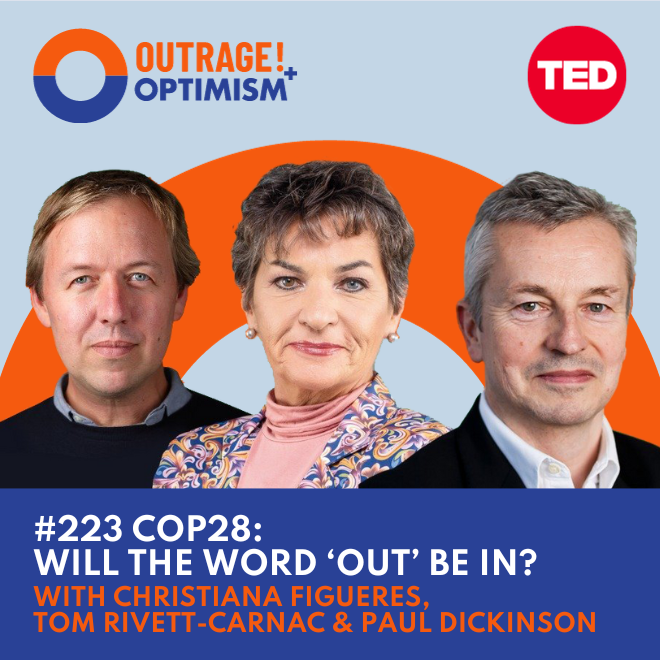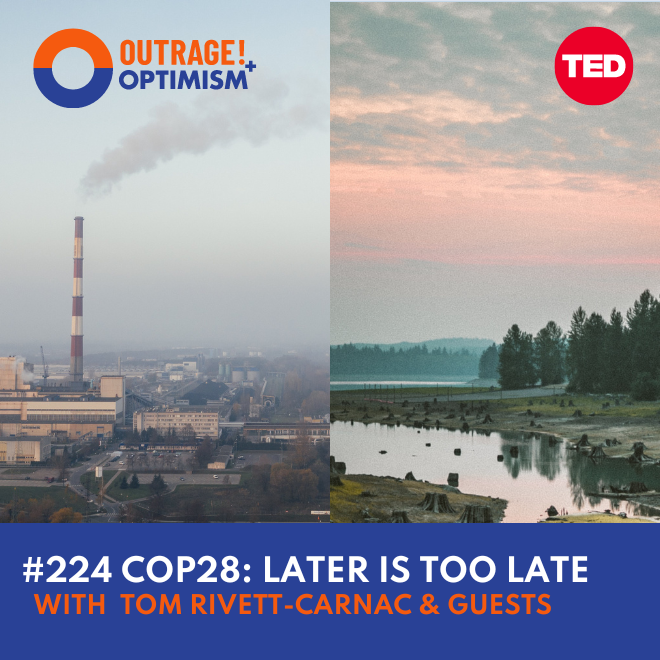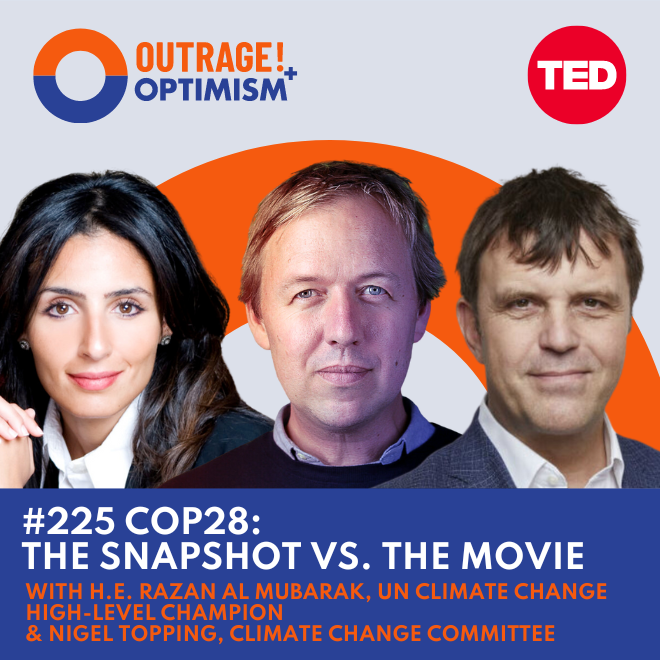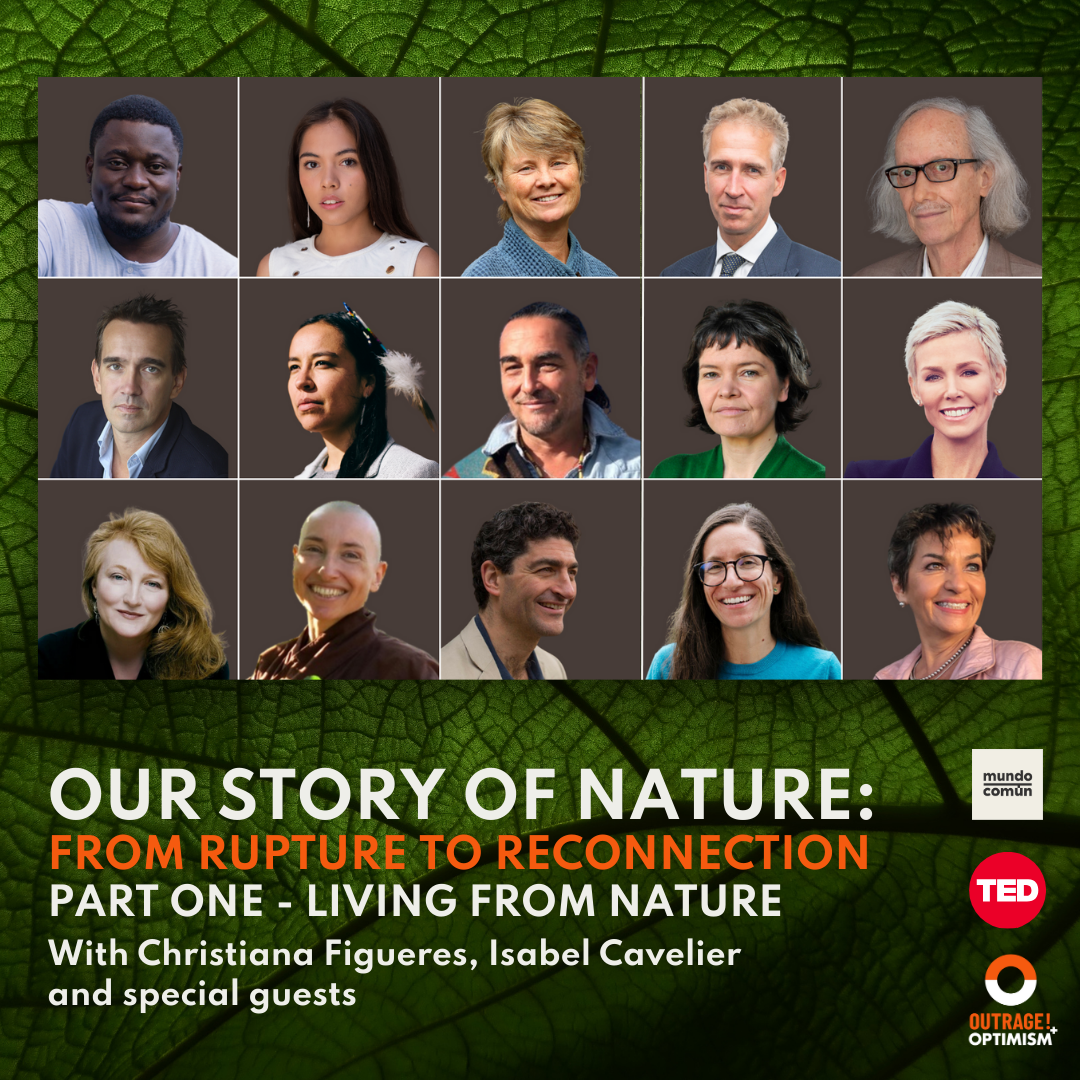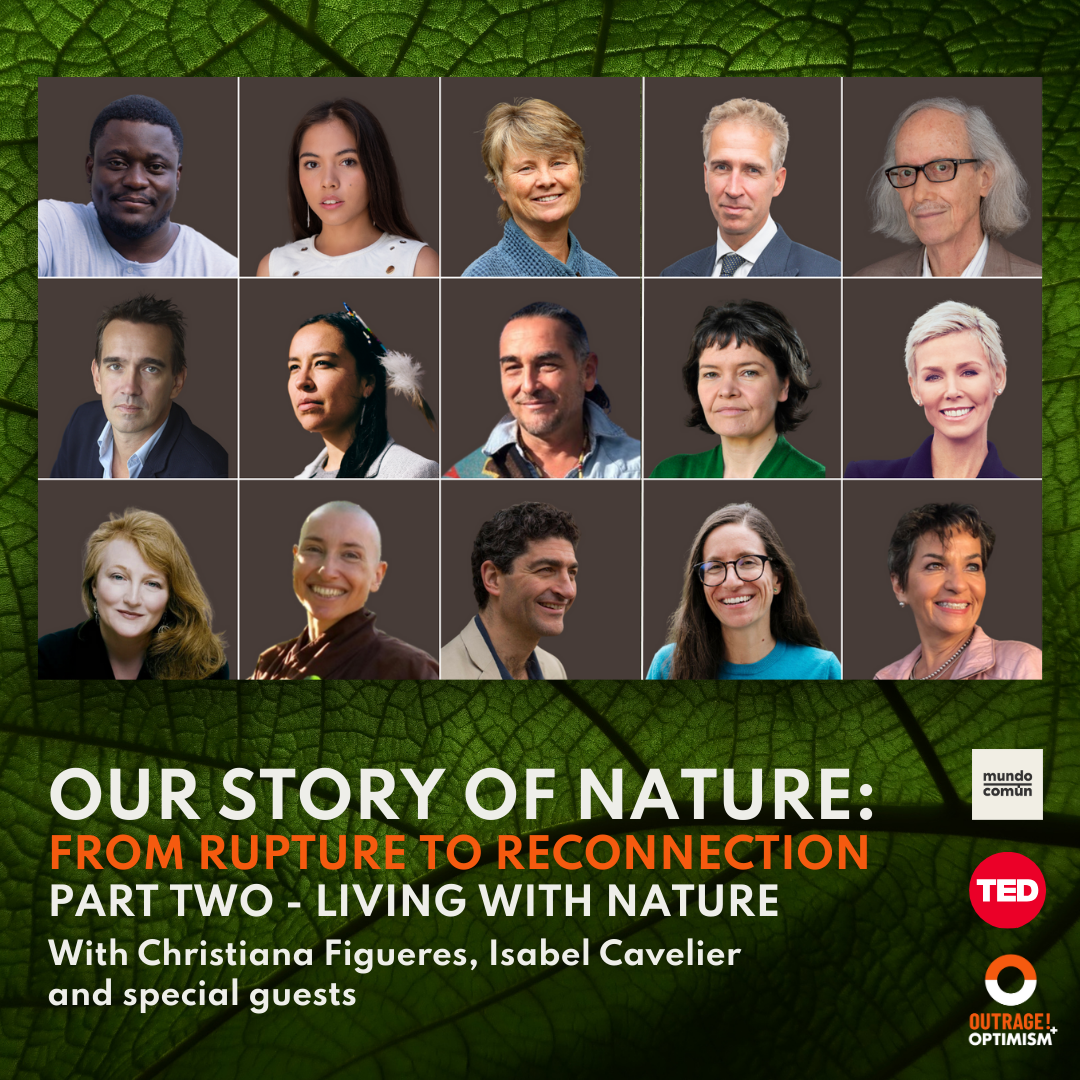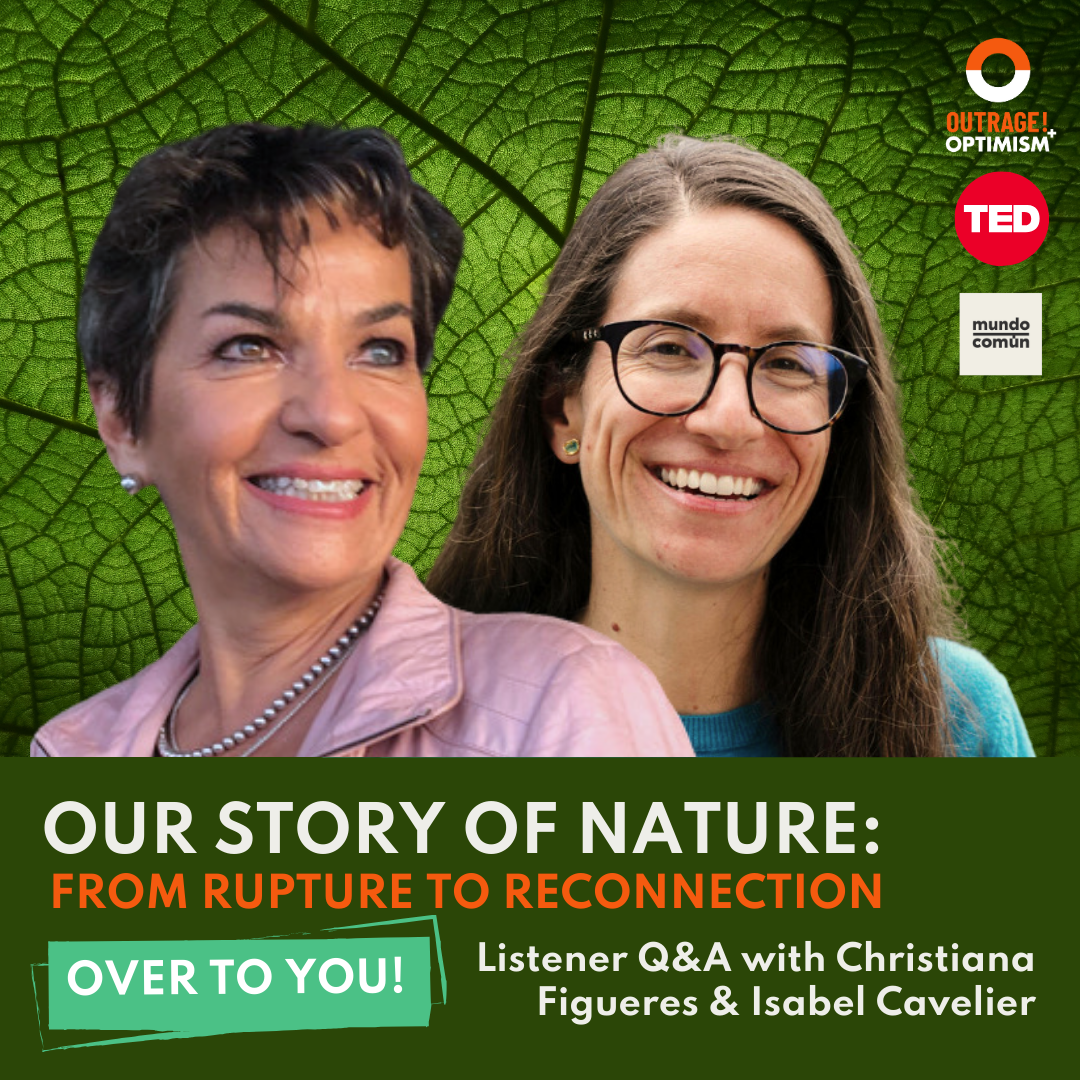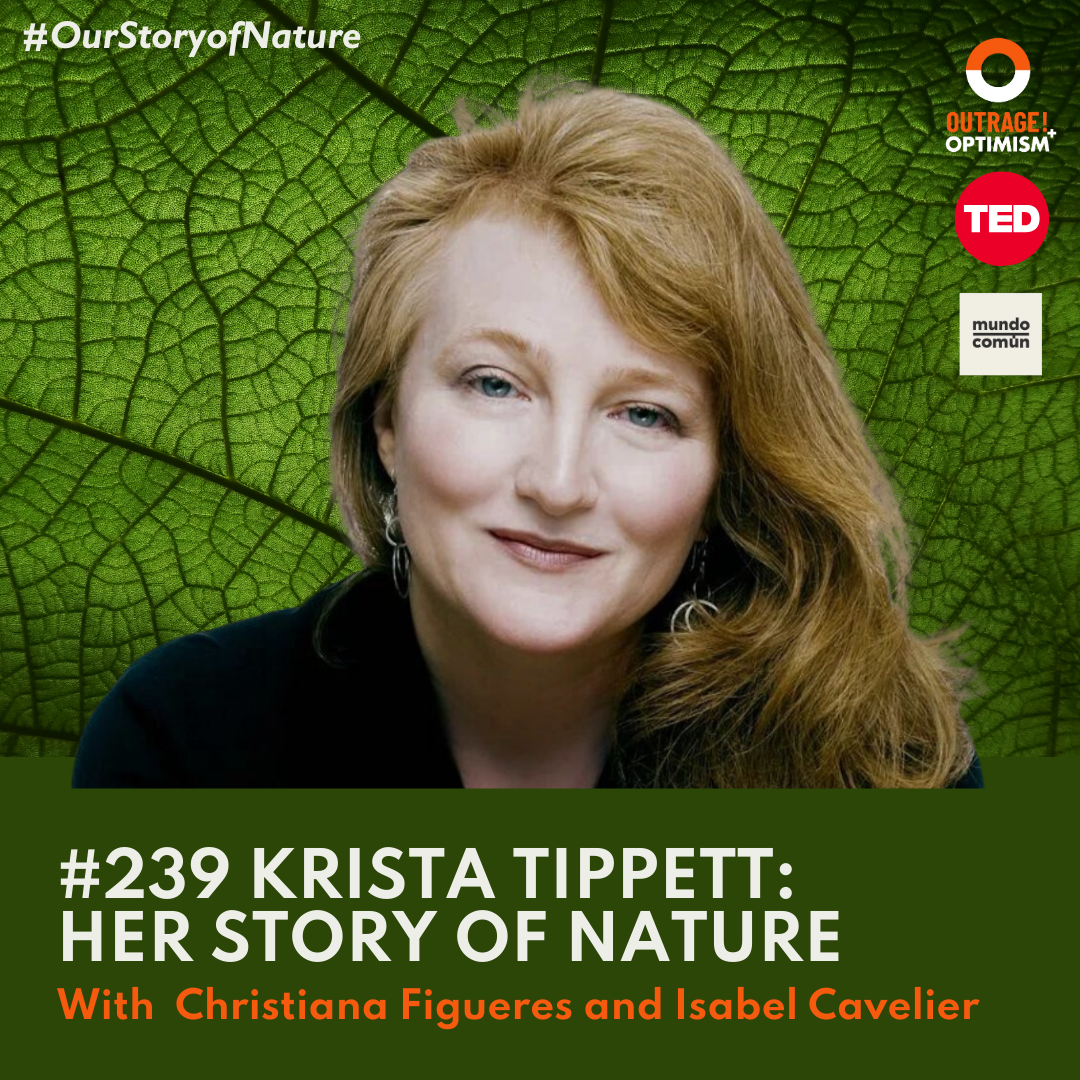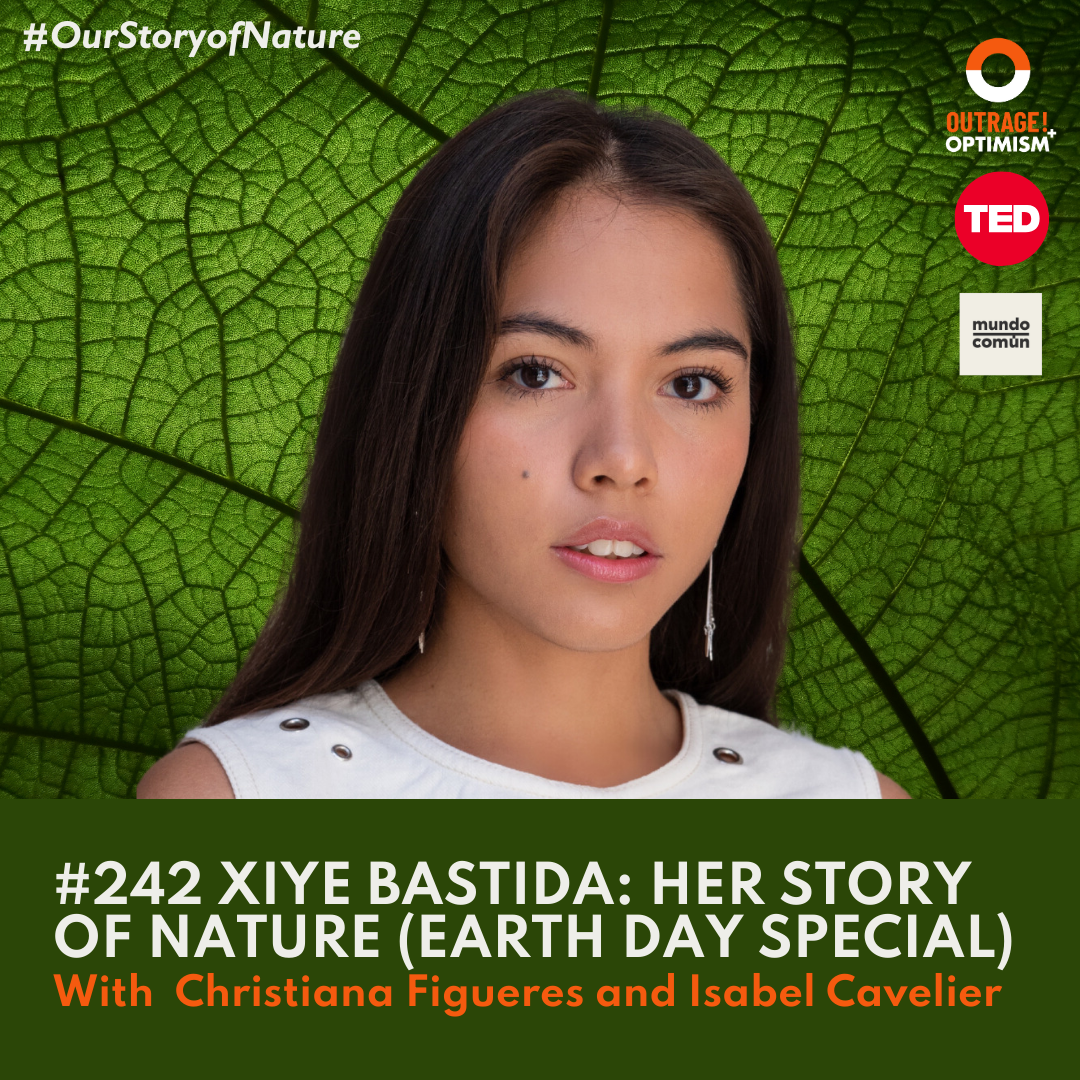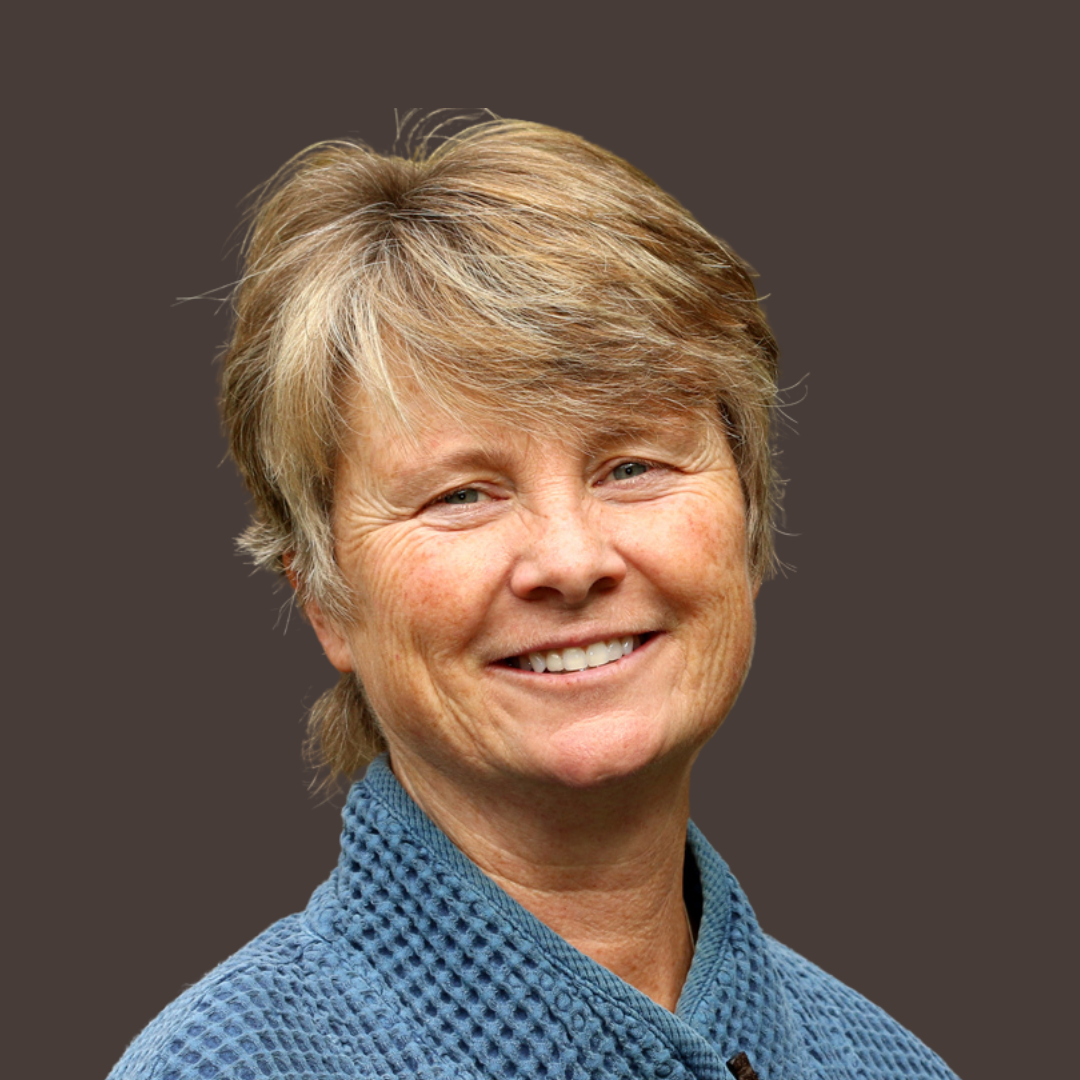232: Our Story of Nature: From Rupture to Reconnection
Part Three - Living As Nature
About this episode
This week, Christiana Figueres and her guest co-host Isabel Cavelier Adarve introduce the third and final episode in their mini-series, Our Story of Nature: From Rupture to Reconnection.
In this episode, Living As Nature, co-hosts and a stellar cast of guests use the pandemic as their jumping off point to unpack how a moment of physical separation, from each other and the natural world, became a strange chrysalis to stronger and deeper interconnections.
Contributors from across many religious and spiritual traditions, including Bayo Akomolafe, public intellectual, and Sister True Dedication,Zen Buddhist monastic teacher join Christiana and Isabel to discuss how developing a sense of reverence and responsibility for the Earth leads to both personal and systemic transformation.
They ask: how can our unprecedented ecological and social crises become an opportunity for the foundation of a new way of relating to each other and to nature? How can we move away from living from nature to living as nature, so that we can grow and flourish?
This episode is part of a series that shines a new light on humanity’s fundamental relationship with the rest of nature as key to responding to the climate crisis and to transitioning into a regenerative future.
Please don’t forget to let us know what you think here, and / or by contacting us on our social media channels or via the website.
NOTES AND RESOURCES
GUESTS
Xiye Bastida, Co-Founder Re-Earth Initiative, Indigenous Wisdom, TIME100Next, UN HLC Ambassador, TED Speaker
Website | LinkedIn | Twitter | Instagram | TED
Janine Benyus, Co-Founder Biomimicry 3.8 and Biomimicry Institute
Biomimicry Institute | LinkedIn | Twitter
Dr. Lyla June Johnston, Indigenous musician, author, and community organizer of Diné (Navajo), Tsétsêhéstâhese (Cheyenne) and European lineages
Website | YouTube | Instagram | Facebook
Dr. Bayo Akomolafe, Public Intellectual, Author, Professor and Chief Curator, The Emergence Network
Website | Course webpage | LinkedIn | Facebook
Sister True Dedication, Zen Buddhist monastic teacher in Thich Nhat Hanh's Plum Village Community
Twitter | Instagram
Plum Village
LinkedIn | Twitter | Instagram | Facebook
Krista Tippett, award-winning journalist, author and host of On Being podcast
Website | LinkedIn | Instagram | Facebook
Arturo Escobar, Professor Emeritus of Anthropology
Wolf Martinez, Diné, Lakota, & Spanish. Two Spirit. Speaker, Ceremonialist and practitioner of Ancient Healing Arts. Therapist. Lover. Human Being.
LinkedIn | Instagram | Facebook
Kate Raworth, Author of Doughnut Economics and Co-founder of Doughnut Economics Action Lab
Twitter | DEAL Twitter
Dr. Gunhild Anker Stordalen, Founder and Executive Chair of EAT Foundation
LinkedIn | Instagram
Learn more about the Paris Agreement.
It’s official, we’re a TED Audio Collective Podcast - Proof!
Check out more podcasts from The TED Audio Collective
Please follow us on social media!
Twitter | Instagram | LinkedIn
Full Transcript
Transcript generated by AI. While we aim for accuracy, errors may still occur. Please refer to the episode’s audio for the definitive version
Christiana Figueres: [00:00:00] Hello and welcome to Outrage + Optimism, I am Christiana Figueres.
Isabel Cavelier: [00:00:04] And I am Isabel Cavelier.
Christiana Figueres: [00:00:06] Dear friends, thank you for joining us today on this final episode of our mini series on nature. And in this part of the story, we're going to be exploring how we might live as nature. We would also love to get into the inquiry of how can the unprecedented ecological and social crisis that we're living through right now lead to the foundation of a new way of relating to each other and to the rest of nature, all of us cohabitants of this planet. Thanks for being here. For those who have been or not been with us here's a quick recap. In episode one, we started telling you a story. A story about the original disconnection from nature, how we humans have evolved different origin stories, and what the consequences of our supposed superiority over nature have been. That was the episode living from nature. In episode two, we told the next chapter of this story about how we are now beginning to live with nature, how the deep paradigms that human civilizations have adopted over time have permeated the major constructs upon which our societies operate, economics, food systems, energy systems and design. Which leads us to the third and final chapter of the story, which is living as nature and Isa, what beans can we spill about the third chapter right off the bat.
Isabel Cavelier: [00:02:14] In this exciting last episode, we are pivoting from talking about how we are starting to live with nature, to glimpsing the future in the present and trying to understand how we are now living as nature. The revelation of interdependence is at the core of this glimpse into the future. Moments of crisis and solitude. This is where maybe we are finding that connection most evident, and this opens up as a new moment for looking inside ourselves and for many, for potentially new spiritual connection. We are going to be talking about wonder, about awe in the natural world and how that shows up in our bodies and in the beautiful planet that we are inhabited. It's all about possibility, about how we are already remaking our world, about how we can already see visions from our own future emerge right now, in the present, here, with, by, and for us. Often, at moments of deep crisis and loneliness, we are able to find connection again. There's a revelation of interdependence, a new moment for looking inside ourselves and for many, even finding a new spiritual connection. So as a prologue to our story of living as nature, we are going to take a quick look at the 2020 pandemic. This globally shared experience is a pretty strong example of how crises and disasters can truly inspire shifts in perspective. Load More
Isabel Cavelier: [00:04:56] During the pandemic, I really had to slow down, and there is something in me that still has some nostalgic feelings for that moment, Christiana, what I feel this pandemic has in it, this great pause, as you are calling it, is that it holds with it big paradoxes that are quite important for what we are talking about today. We had never been more globalized in the history of humankind, and we had never been feeling so isolated from each other. And the second big paradox is that we could see and we could feel in our bodies that we had never experienced being so separated, more isolated, more lonely, and at the same time, our interdependence with the rest of the living world and not just the rest of the human world, but in general, the rest of our planet had never been so needed, so important, so obvious, so explicit materially.
Christiana Figueres: [00:06:08] As we go into the lessons of the pandemic, we should not forget that so many people lost loved ones, that there was such pain in the pandemic, such mental health issues that really are even still with us, especially in children and teenagers who felt even more isolated on the whole than adults. So what a moment of paradox in which there was excruciating human pain and wisdom that was borne out of the excruciating pain of the pandemic. And what is fascinating to me, Isa, is that what links those two experiences of both expansiveness and isolation, of growth and pain is the fact that it was a huge slowdown moment for the world. And we spoke about this with Xiye Bastida, the young Indigenous Otomi-Toltec climate justice activist from Mexico and Co-Founder of the Re-Earth Initiative.
Xiye Bastida: [00:07:17] I think the biggest thing that the pandemic did for everybody was slow down the world. And in a way, our economic system is about how fast you can do things, how efficient can things be, how fast you can make profit, how fast can you heat up your food. Like, why do we have a microwave, and it takes all of these metals to make, and it takes so much work to transport it and distribute it so we can heat up our food in 30s instead of ten minutes. And so we have given up on letting things take their time, and nature takes her time always. A tree cannot grow faster than what a tree is supposed to grow, and the currents are not going to go faster than what they're supposed to go, except when we come and disrupt that cycle because we want things to go faster. I think the pandemic showed us we have to give nature time to heal, ourselves time to heal, and as a whole, slow down a bit more.
Christiana Figueres: [00:08:15] We should not forget that lesson. To slow down, to give time. That nature needs time to heal, that we need to heal. I love, you know how she reminds us that we need to bring our pace down to a speed which allows for emergence and wisdom to show itself, instead of filling up our days with our endless to do lists, me being the first culprit of that. How important it is to make space intentionally now to breathe, to connect, to heal. How important that is. If anything, that is the enduring lesson of the pandemic.
Isabel Cavelier: [00:09:10] So we spoke to Janine Benyus. She's a biologist and author and the Co-Founder of Biomimicry 3.8, about another way we can be open to pivoting our perspectives in regards to the Covid pandemic.
Janine Benyus: [00:09:24] It's such a teachable moment for Biomimicry, the pandemic because, you know, we're still looking at how that might have spilled over from animal populations. But bats, it may have been that bats, right, were the ones who shed the virus. And we got it from bats. Our immediate knee jerk reaction back to vulnerability is let's kill bats. But the thing is that bats have been living with Covid with coronaviruses for 40 million years. They are actually who we should be going to, studying and saying, how is it that your immune system doesn't blow up in a cytokine storm. And they don't.
Christiana Figueres: [00:10:06] Fantastic question. It hit me like a two by four because in the pandemic I came here to where I live now, which is right in front of the Pacific coast, North Pacific coast of Costa Rica, into a home that had been abandoned for ten years. And one of the first things that I noticed when I started living here during the pandemic is that the whole front of the house was occupied by bats. And as Janine was talking about this, I did such a, you know, note to self moment because I remembered that my reaction was, where can I put lights so that the bats are less incentivized to be flying around the house every single night. And I did not think about what can we learn from them. We fall into this deeply rooted, habitual thinking of quote unquote, how do I get rid of nature, it's in my way, I don't want bats here. How do I, you know, what lights and what noises and what can I do to entice the moths to go somewhere else. And now, post-factum, what an interesting intersection for me that the place that I came to during the pandemic had been the home of bats, and that my reaction was, how do I entice them to a different home. So a huge learning for me, me who thinks that I am so open to nature. Why did I think that the red macaws flying over are okay, but the bats are not.
Isabel Cavelier: [00:12:01] Very interesting and to me, the biggest learning in general with this pandemic. The first one slow down, take time, listen. The second one would be don't act out of fear.
Christiana Figueres: [00:12:18] You know, another point, well, I think we will spend years deriving lessons from the pandemic. But another point that I thought was so interesting is that while I was hiding out here in my waltz with the bats, I did and I'm sure you did also Isa read of so many places where nature returned because we removed the pressure on nature, and all of a sudden there were more animals in cities and there were more flowers in gardens. And how nature showed its resilience. And I thought that was such an interesting contrast, because nature showed its strength, the fact that as soon as we remove our pressure from nature, it can thrive in ways that we never would have imagined, and that all of that thriving of the rest of nature occurred during the time in which we humans were experiencing our incredibly deep vulnerability. Dr. Lyla June Johnston, who we interviewed about this. She's an Indigenous community organizer and musician, and she talks so beautifully about how we humans gravitated back to nature in many different ways.
Lyla June Johnston: [00:13:51] A lot of my people came back home, and a lot of my people started planting their fields again and planting corn and just seeing how fragile this system is, right. Like one little virus and like everything shutting down, our economy nearly broke to pieces. Certain things were not stocked. We have shortages of all these foods, and we just realized how fragile this system is. And I think people were moving back to the land to not only have more self-sufficiency and independence, but to have a deeper connection with that.
Isabel Cavelier: [00:14:30] Feeling it in our bones Christiana, really this climax of separation that was also this drive for reconnection.
Christiana Figueres: [00:14:41] We can see that the pain, the trauma, the separation that the pandemic produced also had a positive outcome in terms of revealing our interconnectedness. Pain can be the chrysalis of growth, and grief can be the compost from which new perceptions of reality begin to emerge.
Isabel Cavelier: [00:15:11] We are in a world that is on fire. But what if our instinct was not to look away, to actually allowing ourselves to feel that pain as a first step to the healing process, as a first step of that composting that you spoke about, Christiana, it's like the ultimate paradox. And at the same time, the most obvious of natural cycles is like that deep pain cracking up to the light. Bayo Akomolafe speaks very beautifully about this. He's a Nigerian Yoruba author. He's a speaker, a professor and a poet. So we asked Bayo how he felt pain could be a means of transformation.
Bayo Akomolafe: [00:15:56] I have this saying that comes from a response to the idea that love is a bridge. Love isn't a bridge because to presuppose that love is a bridge is to fall into the dynamic that identifies us as already known. You understand what I mean by that? That to say love is a bridge means that we are individuals, and then there is a bridge, and then we get connected. And then we're in love, and that doesn't quite pan out for me. I think that love is a hyphen. And a hyphen doesn't connect two separate entities. A hyphen presumes that they were never disconnected in the first place. It's from that universe of considerations that I would suggest that pain really does behave like a reminder. It's an alchemy of welcome, right. It's like the chemical processes that allow us to see that the thresholds that we've accepted as firm, concrete, eternal, lasting walls are thresholds, not final destinations. And sometimes it takes the language and the grammar of pain for our bodies to be reintroduced to the ecologies that they're dependent on. And this feels potent to say because of the ways we speak about trauma, in my culture, trauma is not a is not the final bus stop it's a portal. It's an Einstein– Rosen bridge. Yeah, except I wouldn't use bridge, but it's a portal to else where's. So chrysalis, imaginal cells, caterpillars becoming butterflies. Yes. I think pain is necessary as part of transformation.
Isabel Cavelier: [00:17:57] The transmutation of pain into love is such a hopeful and inspiring experience, I would say. And for me, it feels truly like a moment of reawakening. This is the essence of nature and this is the place where all flourishing actually happens. So Christiana, how can we nurture this feeling, this awareness, but also this true experience of interconnection of interbeing with the rest of nature, with what some call the river of life or the web of life. And here we are now going to discuss some of the ways in which this awareness of our connectedness to the rest of nature is already occurring. Some people around the world from many different cultures are already living, you could say more in balance with the natural world, but you could also say truly as nature. And this is something that you, talk a lot about Christiana and that I, have witnessed in our own shared experiences, recently, but also that I know you have been practicing for a very long time through engaged Buddhism. Isn't that right?
Christiana Figueres: [00:19:24] Yeah. That is so true. I happened because the universe wanted it to be so, I happened to discover the teachings of Buddhism, very specifically the teachings of Thich Nhat Hanh, who is a Vietnamese Zen master and teacher who passed on, a few years ago. But I happened to discover his teachings in 2013, when I myself was deep, deep, deep in pain. When you're in the grips of pain and at the bottom of a very dark hole, a very cold hole where you feel completely on your own, you know, in the grips of this pain and suffering, we do have to make a choice and or not. But the only way out of it is to make a choice. And what I have noticed Isa, is that so often the choices that we make are especially in, you know, in the face of threat or pain or suffering, the choices that we make have been basically three choices that we humans have honed over thousands of years, which is flight, we choose to ignore what's going on and cover it up, it's not really happening. Let me, you know, move to the next piece of news or whatever. So, you know, just distract ourselves. Evasion or fight, put on our boxing gloves and blame someone else. Someone else is definitely responsible for my pain, whoever that is. Or of course, freeze, which is feeling completely helpless and hopeless in our grief. And I think those three also are very frequent reactions to the threat of climate change. And you and I, Isabel, we have been there. And none of this is helpful because it just keeps us where we are.
Christiana Figueres: [00:21:29] And so the question that is posed by, well, certainly by Buddhism, but by most contemplative practices is, is there a middle way? Is there a different way to deal with this pain and this suffering? And it is, of course, to acknowledge and embrace the pain and the suffering and see it as the fertilizer, if you will, as the fertile ground for a flourishing. In the words of Thich Nhat Hanh, who became my teacher, no mud, no lotus, because the lotus blooms only in stagnant waters where there is a lot of mud, and otherwise it can't grow, it can't bloom. And so if we don't have mud and please anybody who doesn't have mud in your life, please raise your hand. I don't see any hands being raised. If we don't have mud in our lives, there's very little possibility that we're going to be able to see any lotus blooming. And so that relationship between the mud and the lotus, between the suffering and the growth, between the pain and the wisdom and the joy that actually comes from it, is actually an intentional choice Isa.
Isabel Cavelier: [00:22:48] It is a choice.
Christiana Figueres: [00:22:49] And that for me, I think was the biggest learning out of my pain and my suffering that I had put myself into because I realized that this is my responsibility. I have to make a choice, and those are my choices. And obviously there's only one that is going to restore my joy in life and my agency in life. And so thank the teachings, I made the right choice. But let's admit, it's not easy to make that choice.
Isabel Cavelier: [00:23:20] Not at all, not at all. In order to transcend separation, we really need to be in that pain. And let's look at that fear in the eye and go through it. And I think that is your example and your Christiana, your experience in, thank you very much for that vulnerability that you are sharing. You have really put it very beautifully.
Christiana Figueres: [00:23:49] One of the people that I have heard speak most eloquently about this is one of the monastic sisters from the Plum Village community, Sister True Dedication. She's a Zen Buddhist monastic teacher and spiritual leader, but she actually worked as a journalist for the BBC News in London before she became a Buddhist nun. And hence she brings a beautiful bridging capacity between the contemplative wisdom and understanding and what we might irresponsibly call the outside world, the life, the political forces at work. And we interviewed her about her learnings as she has become a Zen Buddhist nun.
Sister True Dedication: [00:24:40] Hello everybody. My name is Sister True Dedication and I am a Dharma teacher in Thich Nhat Hanh's Plum Village tradition. So for us, we would say that as human beings, as living beings, we kind of inter-are inter-are with the whole natural world. And there's a wonderful term that's at the kind of heart of Buddhism which is interdependent, co-arising that the wonders of life have manifested and evolve over time. And they're in this kind of constant state of kind of becoming and re manifestation and evolving. And so for us, we don't have the kind of dualism, maybe between a creator and a creation, but nature reveals itself. So in some ways we're quite close, actually, to kind of Spinoza and some other Christian theorists who see that the spirit is imminent, is there in all of life. So that is our Buddhist understanding of life and its complexity. And Thay, Thich Nhat Hanh, our teacher, he once said, we can reduce this to five very simple words, this is because that is, this is because that is. So everything has a kind of inter causality. Humans can manifest because of an unlimited amount of other conditions. And how we are with our actions now are causing harm or goodness. Whether we are evolving in a certain direction or another direction, there's a kind of infinite web of causality that connects us to the living world. And this may seem, on the one hand, it may suddenly seem if there's infinite conditions, oh my goodness, we don't have much agency. But actually because of the interbeing that in the Buddhist teaching is the source of all possible, agency, because we're so connected to the natural world, because we are a part of it, because we have emerged from it, because we're an expression of it, then everything we do can already heal and transform the natural world.
Christiana Figueres: [00:26:54] You know, this concept of interbeing is so central not just to all Buddhist teachings, but, but honestly, to understand that there is no separation between us and the rest of nature. And so the concept of interbeing is very helpful. And I would say something that we really have to dig into because it's not an easy concept to yes, to understand intellectually, yes, but to live out of. That is the challenge. How do we live out of the reality of interbeing.
Isabel Cavelier: [00:27:37] That's right. And how that new mindset, if one chooses to adopt that new mindset and to live from it. How would that then have a real impact in collective change in the world is the big question. And Sister True speaks about this very beautifully as well.
Sister True Dedication: [00:27:58] The Buddhist vision of things is that the mind needs some training in order to see things clearly. When we're able to cultivate the concentration on interbeing, we're able to remove this veil of ignorance, and we start to see that we and the natural world are deeply interconnected. We see the Earth almost as an extension of our own body. Harming the body of the earth is harming ourselves. Flourishing of the earth is a necessary condition for the flourishing of humans. And so with the spiritual practice and the kind of practices we cultivate in mindfulness meditation and Buddhism in general, we're finding, if you like, fulfilment in simplicity and simple living and the wonders of the present moment, you don't need to have a lot. You don't need to extract a lot. You don't need to produce and generate a lot. We don't need that kind of roller coaster economic growth for humans to be happy. We're so often, I think, caught in the idea that, like climate change is a human problem, and therefore as humans, we have to kind of solve it somehow separately from everything else. But Earth is there ready to help us solve it. You know, she's there to be a refresher for us, spirit for our mind, allowing ourselves to listen to the silence of the earth, the wonders of the earth that would be a part of our kind of spiritual resource, our spiritual energy to give us the strength to transform the difficult situation we find ourselves in. And that is why the insights of interbeing interdependence across space and time becomes so important. Each one of us has our role to play. Any one action now has ripples beyond our imagining.
Isabel Cavelier: [00:29:54] And that interdependence across time, that mention of it, I find it so fascinating. It's also where you can start to understand really, truly, materially that we have actually always been nature. We haven't been anything else than nature. Bayo does a very good synthesis of this.
Bayo Akomolafe: [00:30:18] I'm trying to repeat the words of Donna Haraway when she says nature is a denaturing of itself, right. Nature denatures itself. There isn't a stable ground to stand on, even when we speak about it poetically right. Like saying, hey, let's get back to nature, then where are you leaving from, right. There isn't some outside of nature that you're standing on that you want to get back to nature. We have always been connected to nature.
Isabel Cavelier: [00:30:48] Interdependence and connectedness through time and space. We are representatives of a whole web of life that is entangled with us through space and time, and that each of our actions, just like Sister True was telling us, has impacts in the chain of causality. And that is a pretty powerful place for agency. That is exactly what Lyla June is telling us and is sharing with us from her own community and her own belief system of how we are actually connected to the entire river of life through and with our ancestry and linked through and with prayer. And I find that that's a very practical thing to do. Let's listen to Lyla.
Lyla June Johnston: [00:31:42] We're not living in simply a material world. We are porous beings, energetically porous. There are things moving in us, moving out of us, moving through us at all times. Some cultures call them ancestors. Some cultures call them enlightened masters, some cultures call them the grandmothers and the grandfathers. But these are the beings that walk with us, and each and every one of us has a circle of those beings that guides us. And each and every one of us is never, ever, ever alone. We are not designed just to live alone in this body. We're actually designed to merge with the ancestors. And that's the word genius. Genius comes from the root word geni, which means spirit. So the genius was someone, not someone who was so special, but rather someone who could get out of the way enough for the spirit to move through them. When we understand we're spiritual beings living in a spiritual world, everything makes much more sense and we start to see why, even though we have these PhDs and these rocket scientists and these, you know, all these gadgets that we're still unhappy, we're still, have poverty. We still have a wealth disparity, we still have war. We still have children being blown up by bombs. Because apparently, if you just understand the physical, just understand the mechanics of stuff, that that's apparently not enough to create a civilized, refined, evolved society. You have to know the spiritual dimension. You have to know how to operate within it, and the way to operate within it, from what I've been taught, is to be a being of love as much as you possibly can. And that helps you tap into that force, that holy spirit, or that chi or that mana or prana or whatever it is your culture calls it, that good, good energy that will help you connect to that. And then you'll walk with a whole legion of ancestors with you, and you'll never be alone, and you'll be a regenerative, giving being.
Christiana Figueres: [00:33:50] I find it quite heartening, actually, that we have so much more company and so much more wisdom that we can inherit if we choose to be attentive to it. In the climate space, we usually think about regeneration only of, you know, regenerating the depleted soils and regenerating the forests and actually regenerating is so much more than that. What we think from simply a very narrow rationale perspective, reasoning perspective falls very, very short as being the only mode of perception. So this is an invitation to, not to deny reason and rationality, but to complement it with other modes of perception and other lenses for reality.
Isabel Cavelier: [00:34:44] And it's also an invitation to choose Christiana once again, what it is that you let in, and what it is that you don't nurture in yourself. It's this capacity that we have to choose to invoke what we wish for ourselves and for the rest, conscious of the impact that we have in all of that river that we are interconnected with, and conscious that even in our thought and in our invocations, we are nurturing a particular paradigm or another.
Christiana Figueres: [00:35:24] So Isa, isn't it true that many religious and spiritual traditions emphasize the importance of living in harmony with nature and actively and intentionally recognizing our interconnectedness with all life. By nurturing our spiritual connection to nature, we can develop a sense of reverence, of awe for everything that surrounds us, and that will lead us to more compassionate and responsible choices in our life.
Isabel Cavelier: [00:36:04] That's right. We have a human capacity of actually sensing in our bodies the feeling of awe for the world that surrounds us.
Christiana Figueres: [00:36:17] Yeah, I love that word awe, the sense of awe, at least in part it is a recognition that there is so much out there to which we are inter-linked, with which we inter-be and inter-are and, and that inasmuch as we open ourselves to that, we do fall into awe, you know, I almost feel we fall on our knees in awe because we give in to the humility of understanding that we're a little speck and that we're not at the centre of the universe.
Isabel Cavelier: [00:36:59] It is in awe, in humility, and at least for me, it is in the deepest gratitude, is this profound feeling of the grace of being alive. How probable was it that you, you, after all of those millennia actually are alive. The daughter or the son of all of those who survived all the way from the bacteria, the first.
Christiana Figueres: [00:37:31] Exactly.
Isabel Cavelier: [00:37:32] Bacteria that metabolized, you know, each other to make oxygen, geological time all the way down to you. You are the product of all of those who survived.
Christiana Figueres: [00:37:45] What a miracle.
Isabel Cavelier: [00:37:46] What a depth and what a grace it is. What a miracle it is to be alive. Yes.
Christiana Figueres: [00:37:53] Yeah. To think that we are the direct descendants of the spark of photosynthesis. Because that was a spark. An original spark. And here we are. Whoa!
Isabel Cavelier: [00:38:05] Exactly, yes. Still eating photosynthesis.
Christiana Figueres: [00:38:07] Still eating photosynthesis.
Isabel Cavelier: [00:38:09] Yes, yes. Krista Tippett speaks about awe in her own experience. And Krista is a journalist, an author and entrepreneur and academic. In 2014, President Obama awarded Krista the National Humanities Medal at the White House for, quote, thoughtfully delving into the mysteries of human existence on air and in print, Miss Tippett avoids easy answers, embracing complexity and inviting people of every background to join her in conversation about faith, ethics and moral wisdom. End quote.
Christiana Figueres: [00:38:50] What a beautiful description of who Krista is.
Isabel Cavelier: [00:38:53] Christiana. Let's listen from Krista.
Krista Tippett: [00:39:00] There are so many, so many, so many beautiful places on this planet Earth. And I kept having this experience of just standing there, taking it in and, and just wondering how it is that we humans did not see what was around us and just be in a state of wondering and adoring and act accordingly. I mean, it is such a strange thing about human beings that some of them things that we most need to learn to grow wise and to grow up are things that we've known forever in our bodies. But then we finally know with consciousness for the first time. There are all kinds of things we're coming to understand about how our brains work and how our bodies work, that help explain how these perceptions have helped us navigate the complexity of reality and move through the world and feel safe. But our ability to perceive the fullness of reality is limited as much as it is enabled, it is limited by our senses and by our brains that are working so hard to keep us safe. And one of the most beautiful things about being alive now is how science is becoming a companion for a greater consciousness, a consciousness that both brings us forward and brings us back, right. Again plants us in the reality that we've become alienated from.
Krista Tippett: [00:40:29] And yes, it's absolutely, you know, it's Suzanne Simard's work on the life, you know, the underground life of a forest that is really a template for community, for vitality and so much else, kind of in that sphere of understanding the natural world. I feel that there's a complementarity emerging between how we're learning to just see the sentience of other living beings, of plants and animals. Also, how we're understanding ourselves. For example, Dacher Keltner, who's working with the science of awe, this is not the kind of thing that science, Western science, has taken seriously, but to understand the experience of awe as something that actually is one of the most life giving experiences that we have, that it has all these physical, immunological, nervous system effects on us. And, what feels so important in the context of this conversation we're having is, of course, the experience that so many of us just organically have in the natural world is that awe experience.
Christiana Figueres: [00:41:51] You know, I so love Krista's just masterful use of words and concepts. The phrase the science of awe. She has such a capacity to put very complex realities into simple terms and to point out the fact that science, especially neuroscience, is now confirming that our intentional and active interrelationship and intercommunication with nature has an effect on our bodies and on our spirits and on our souls. We shouldn't be surprised that there is a rising science of awe.
Isabel Cavelier: [00:42:45] That's right. It is also a confirmation that the experience of awe is an embodied one, is a material one, right. But it comes through our senses, and it comes that time when you really move through that threshold of mystery, you go beyond your rational capacity to explain, but you are actually befriending your body's ability to sense. And awe actually often happens in unusual places and moments, or something that I love how Bayo speaks about thin places or edges. Let's hear from him again.
Bayo Akomolafe: [00:43:28] So by edge I mean the worldly, corporeal, material semiotic practices that, interactively create boundaries between worlds but still remain open to the interruption, to the intervention, and to the agency of the without, right. This idea of a thin place is where the sacred or the spiritual in that conceptualization as something beyond the ordinary, leans in so close on the ordinary that it almost pierces the membrane of the ordinary right. You can sense it a thin place, right. Maybe you're jogging around your neighbourhood in the morning and you catch a glimpse of sunrise, right. You catch a glimpse of sunrise and you're immediately overwhelmed with something that is not available for modern rationalities in that moment, you can sense something. So that's a thin place.
Isabel Cavelier: [00:44:34] Once we open ourselves to listen and to feel that there are no strict boundaries, there are no uninterrupted lines between my skin and the outer world right. It's a porosity that we actually live in. That's when then we find awe.
Christiana Figueres: [00:44:57] And Krista has yet again a beautiful term for this. She calls it collective effervescence. Let's listen to how she uses that terms.
Krista Tippett: [00:45:05] You know, there's language of collective effervescence that we can also literally that our bodies sync up in certain situations, that we have a physical experience. That means our hearts are beating at the same time, and our breath is in unison when we put ourselves in the presence of awe so, one of the main sources of awe that these scientists found all over the world, in many countries, many languages, making sure that they weren't just studying a certain kind of person was how moved and elevated we are by what they called moral beauty, which is also the ordinary experience we human beings have of the beauty of other human beings, of the generosity of other lives, of the capacity we have although it doesn't make the news, to rise to our better selves to learn and us internalizing not just what goes wrong, which is true, but the fuller story of our capacities of what we are learning, of how we are growing. That is such a critical muscle for us to face our ecological present and future right. That's a critical muscle for us to have the kind of the muscular hope that we need and the imagination that is required to really bring about a different world and nothing less is called for.
Isabel Cavelier: [00:46:35] I love it how Krista speaks that we are not only in astonishment of the rest of nature, but of each other. It's just so touching and so profound that humanity is also this innate, profound beauty, moral beauty, as Krista calls it.
Christiana Figueres: [00:46:56] Yeah, yeah, yeah, exactly. Moral beauty. But here is where that wisdom of that, you know, age old saying goes, beauty is in the eyes of the beholder, and moral beauty is also in the eyes of the beholder. We will not be able to see moral beauty in ourselves or in the rest of nature. If we do not choose to focus on that, we will see everything but moral beauty. If, however, we put on our glasses in search of moral beauty, we will see it everywhere and anywhere. But it has to be a choice. So now, friends, in this final episode, we set out an inquiry into how our narratives can be the drivers of a new experience of our reality. Because you see the stories we tell ourselves as individuals and for sure as a species, determine our self-identity in this world. They determine our emotions, our thoughts, our actions, and hence the impact that we have on the world.
Isabel Cavelier: [00:48:26] As Krista would say, the stories that we've been told and handed down have a huge influence on our capacity to imagine. They're the basis of our imagination. Now, we are understanding that we have as advanced capacity to understand and perceive the world through many other modes of perception, as well as science. And all of that starts with the stories that we tell ourselves. They're the backbone of our belief systems and therefore of the material systems that we create and the ways we view ourselves in the environment.
Christiana Figueres: [00:49:03] Those stories and narratives that we've been talking about now for three episodes, it is an amazing how they create the worlds that we then inhabit. It's not the other way around. We tell the story, we invent the stories, we imagine the stories, we tell them from generation to generation. And then that creates the worlds that we inhabit. And it's not easy to challenge that construct.
Isabel Cavelier: [00:49:27] The trick, Christiana, is not to forget that what seems to be so established in reality is susceptible to change, that reality is ever changing, and that stories and words that creates the stories are powerful. Very powerful, in the words of Krista.
Krista Tippett: [00:49:48] I think that words are some of the most powerful tools that we possess, and they are so ordinary. We live with them. We work with them. They flow out of us all day long. And we often are unaware of how much they work in the world. We know that words can be weapons, and with my words I can make someone else's day, I can break someone else's day. And one of my strongest health convictions is, you know, the ancient rabbi said, words make worlds. And that is my observation right. So that's why it really matters when we use language of domination and subduing, that language shaped our relationship with the world of which we were part. And I carry that also as a source of hope right. I really think that every time we, we work with our words and take care with our words, you know, we can literally bring new realities into being. That is one way to start. How have we structured our world around hierarchy and domination and the myth of a strategic plan and of solutions and what you know, if you think about just the difference between entanglement or mergers, right. So I just think like these are words. They are words that don't just describe the truth about reality that we haven't factored into how we've lived. This kind of language will also shape imagination, and imagination shapes what we bring into being or what we fail to bring into being.
Isabel Cavelier: [00:51:37] Krista reminds me of Sylvia Wynter, Christiana, she's a Jamaican philosopher and she writes, quote, that which we have made, we can unmake then consciously now remake.
Christiana Figueres: [00:51:53] Yes, yes.
Isabel Cavelier: [00:51:54] Yes, it's beautiful. I owe this quote to Arturo Escobar, who speaks very powerfully about this.
Arturo Escobar: [00:52:03] All of our lives, we have been trapped in these toxic loops of being competitive individuals who exist in capitalist societies to maximize our benefit, to see others as competitors, if not enemies, to feel superior to others, and so forth. So how do we get out of that rat race. How do we get out of those toxic loops of existence, as we may call them. And it's not easy, but more and more people are doing it today. That's one of the great changes I think we can see today. I mean, on the one hand, we see that the world at the top is becoming increasingly callous and increasingly unable to see the importance of the moment today as a turning point for humanity and for the planet. But on the other hand, on the ground at the meso level, in between the grassroots and circles of power, then we find all this proliferation of ideas and new practices and ways of doing and thinking and being that are different and that do not conform to the script of competition and aggression and individualism, but that are aiming to move away from that into a whole series of new narratives regeneration and care, relationality, interdependence, restoration, well-being, more holistic. That are conscious that we humans, we live in a living cosmos and so forth. We know that narrative of a single enemy doesn't work anymore. Moreover, I think that there is a greater recognition today that we need what we can call a politics without enemies, a politics because if we really acknowledge the radical interdependence of everything that exists, we are all interconnected, while all interdependent, and even those who do awful things are part of the world and are part of us. So how do we deal with that without leaving off the hook those who are responsible for the mess without leaving them off the hook, but at the same time advancing the agendas and the alternatives that we wish to advance.
Christiana Figueres: [00:54:21] Isa, so he talks about advancing the agendas and the alternatives that we wish to advance. Which of course brings me to Mundo Comun, because you and your colleagues there at Mundo Comun are really at the forefront of breaking new ground in agendas and alternative ways of being and doing also, but mostly being. Why don't you share with us a little bit about your new stories, your new narratives, your vision for a new way of being.
Isabel Cavelier: [00:54:59] That's right Christiana, thank you for that question. The moment of crisis and the Galilean moment that we are living through right now is all about how we can build again a common world, a world that we share beyond, just shared among humans, but truly shared in a planetary way, in an expansive way. That's why Mundo Comun's whole point is to nurture a culture that is rooted in that acknowledgment of radical interdependence, and that transmutes the paradigm of separation into a paradigm of care, not extraction, but care. So we are working currently to create, for example, a Spanish version of this mini series that will be coming out very soon.
Christiana Figueres: [00:55:54] Bravo, bravo, bellissimo.
Isabel Cavelier: [00:55:54] Para todos Los Hispanos oyentes. There are listeners of Outrage + Optimism. It's going to come out, this year, later on in the summer. And that's but one of our streams of work is the new stories. How can we tell the stories in our own languages, and we contribute to this performative act of creating the world through the stories we tell. That's one part of Mundo Comun. And through living the experience of being in a culture of care and interdependence and if we have wisdom we are the version to become regenerative beings, in an experiential way. So that is Mundo Comun. It has both the experience and the story. And we are working from Colombia, but with and for the entire entanglement that we are. And that performative act really is what Mundo Comun is, and it's what we are doing right now Christiana, we are performing the creation of the new world. We are bringing the future into the present.
Christiana Figueres: [00:56:57] Well, and it is also Isa with that explanation of Mundo Comun, it is also now, hopefully, if not before, completely evident to all listeners why I asked you to co-host this mini series with me, because you and your colleagues are the embodiment of what we have been, trying to communicate here over three episodes. And you are not just communicating it and discovering it, you are embodying it. And hence, that was the great discovery that I made a long time ago as I was sitting next to you and I went, whoa, this woman already knows, she's already there.
Isabel Cavelier: [00:57:40] And that is why Christiana, we are profoundly and humbly grateful and very joyful to receive this invitation and to invite you back to do this.
Christiana Figueres: [00:57:52] En español.
Isabel Cavelier: [00:57:52] En español.
Christiana Figueres: [00:57:54] De Los dioses, muy bien.
Isabel Cavelier: [00:57:55] Si senora.
Christiana Figueres: [00:57:56] Muy bien.
Isabel Cavelier: [00:57:57] Exactamente.
Christiana Figueres: [00:57:58] No, for sure, for sure.
Isabel Cavelier: [00:58:00] So let's perform this act of bringing the future into the present. That is how there is no other way to close our mini series than to bring to our listeners visions from that future that we are already living, starting to sprout now. And here are some of the voices that are already pulling the future into the present.
Arturo Escobar: [00:58:33] What I feel about the current moment, that is hopeful. I have the feeling that more and more people are experiencing a sense of a historical mission, the historical mission of saving the planet if you wish, saving the human and, in more complex versions, reconstituting the web of life, healing the web of life, rethinking the human, remaking the human. Finding new ways of dwelling on the earth.
Bayo Akomolafe: [00:59:09] It's not that easy to conceive of the world in terms of individuals acting upon it. Instead, we are networks. We are rhizomatic networks. Meaning I am connected with technology, with furniture, with texture, and I'm hybridized in that way to act within the world. So it's not me acting. It is the assemblage that acts. When the assemblage comes together, then things erupt right. It's this idea that maybe, maybe, just maybe, we are entangled with ecologies. We're entangled with worlds. Maybe we are not as isolated or as dissociated as we think.
Gunhild Stordalen: [00:59:59] It's all about how we are relating to each other and treating life or all living beings with respect and understanding, how the interconnectivity is what keeps us going and alive.
Kate Raworth: [01:00:17] It's to recognize that we are dependent upon and part of the living world, and therefore we use her materials with respect, with gratitude. We use them effectively, we use them sufficiently, and we return them and restore them so that we're part of creating conditions conducive to life.
Janine Benyus: [01:00:37] I look and I think, I hope we don't turn away from nature again, because I think we are turning towards, as you said, I think we are, and we have to remember this time to not turn away out of fear, but rather to turn towards with the full understanding that we are nature. And that's why it makes sense to emulate the rest of the natural world.
Wolf Martinez: [01:01:08] We are at a crossroads. One direction is the path of fear and destruction. The other path is the path of love and creativity. Both paths lead to where we are going, but we're the ones that choose how we're going to get there.
Lyla June Johnston: [01:01:30] In Yoruba, the word for human is chosen one. It translates to chosen one, which is a West African indigenous language. And they say, we're not chosen to be the best and the most mighty. We were chosen by the creator to take care of the earth. That is our true purpose. How much do you care for others? How much are you practicing generosity? How much are you being brave? How much are you humbling yourself?
Father Augusto Zampini: [01:02:03] So I pray that we can go towards a society where we can really take care from each other, and we can live not just from nature or to get on with nature. So now we can live as nature. So this is my prayer. My prayer is that we take this crisis as an opportunity for a new foundation. But, well, I know that it's a very ambitious prayer, but nothing is impossible to God.
Peter Frankopan: [01:02:41] I hope by 2050 all young kids will understand the natural world better. I hope that we will be more sparing of the kinds of ways in which we mine and dig and burn and eat. I hope we will be taking more advantage of the sciences to use those wonders that we can achieve, and I hope we'll be more tolerant and compassionate and kind to each other, particularly tolerant and kind and compassionate to people who don't look like us or sound like us.
Krista Tippett: [01:03:08] The possibility of wholeness, of becoming whole, which is healing and not curing, right. Which takes all of our vulnerability in and the fact that we need each other and that we must belong and that we must share, and that we learn through what goes wrong, that we are not perfect, we are imperfect, and we are vulnerable. And precisely in that state, we can be healing and we can be whole.
Sister True Dedication: [01:03:42] Unless, as a species, humanity is able to fall in love with the Earth again, we won't be able to find a way through this crisis. If I haven't fallen in love with the Earth yet, then how can I do that? How can I make time for that in my week? How can I make that part of living well this lifetime?
Christiana Figueres: [01:04:14] And so, dear listeners, what is your story about your relationship with nature? How has that changed throughout your life? Do you want to continue evolving it, and if so, in what direction? And once you change your story, what will that allow you to do? A huge thanks to our guests for their pearls of wisdom. Xiye Bastida, Peter Frankopan, Janine Benyus, Krista Tippett, Lyla June Johnston, Augusto Zampini, Wolf Martinez, Arturo Escobar, Kate Raworth, Gunhild Stordalen, Kingsmill Bond and Bayo Akomolafe. And of course, a very special thanks to you, Isabel, my wonderful, wonderful co-host. Thank you so, so much, Isabel Cavelier.
Isabel Cavelier: [01:05:14] Thank you, Christiana, and let's leave listeners with our youngest guest, one last voice shining light on the future we are learning to imagine through the stories we tell ourselves.
Xiye Bastida: [01:05:28] It's kind of a poem to myself and to the world. Think of yourself as a tree with long and strong roots that connect you with the womb of the earth. Roots that absorb groundwater enrich you every day and give you the strength to stand tall. Picture yourself with a strong trunk, a strong core an unshakable centre. That is the source of your vitality, your love, your fire. You have strong and long branches that can reach anything, anywhere. With those branches, you can give and receive. You can hold and hug. You can give shelter. Picture your leaves absorbing the sun growing full and green changing with each season. Adapting, growing, falling, decaying and growing again. Picture the fruits you give, the seeds they have that will grow into strong trees, that will connect with the womb of the earth and the heart of the sky. Receive the rain, the wind, the sun. Receive and give. Give your fruits, your shelter, your seeds. Be unshakeable. Be adaptable. Be strong. Be loving. But most of all, be yourself. Take your space. Take your time. Respect time. Things take time. Change takes time. But change will come.
Your hosts

Christiana Figueres
 Follow Christiana Figueres on Instagram
Follow Christiana Figueres on Instagram
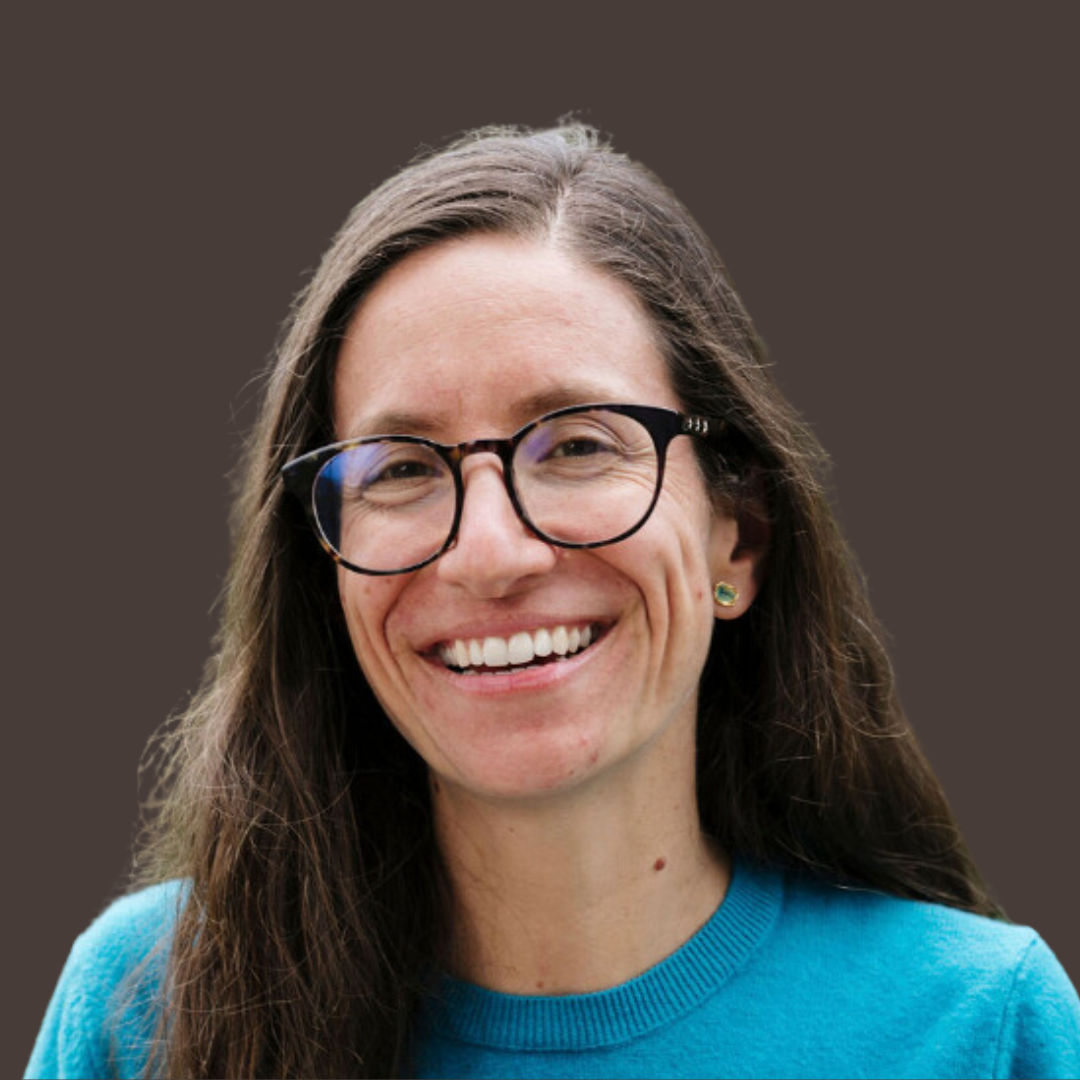
Isabel Cavelier Adarve
Guests
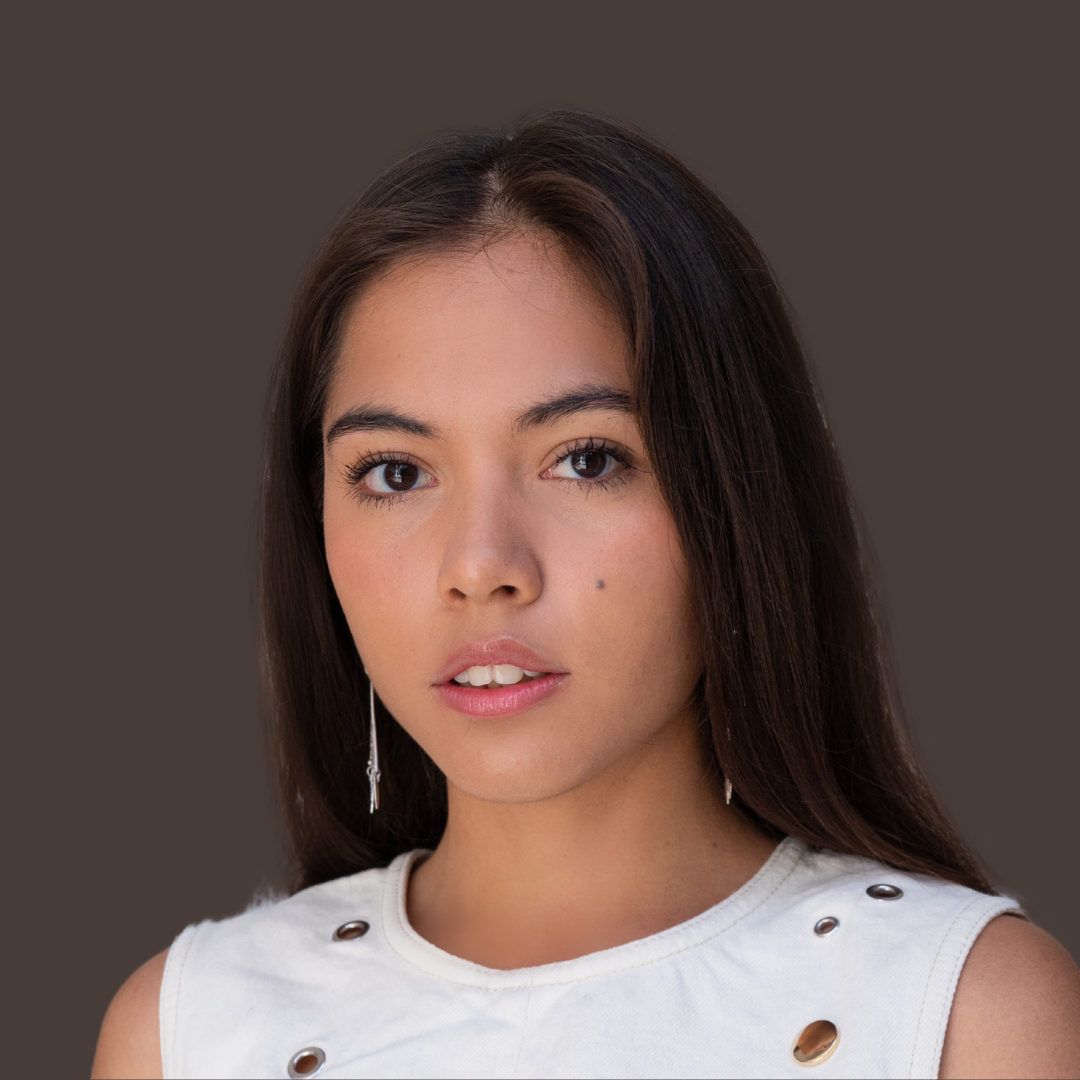
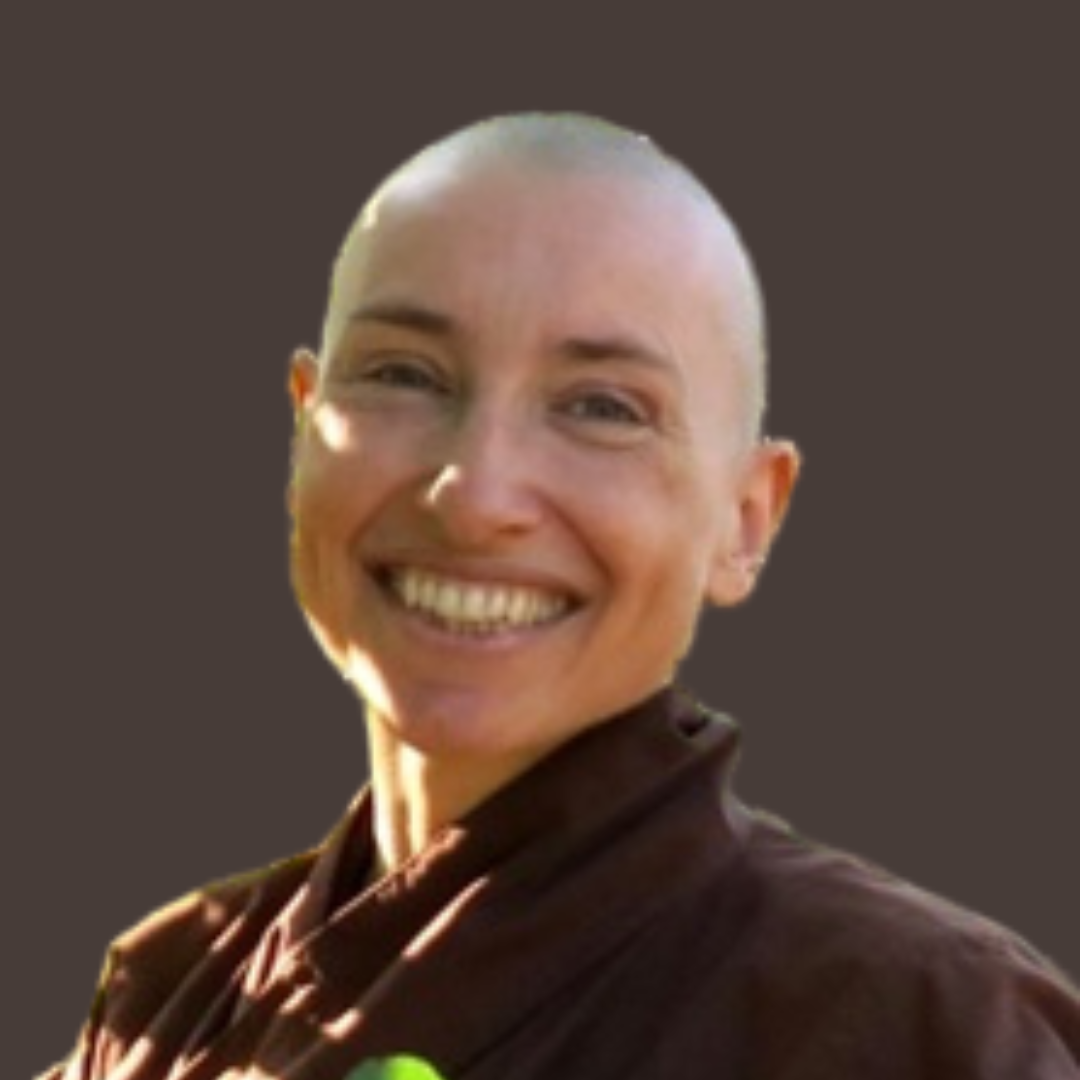
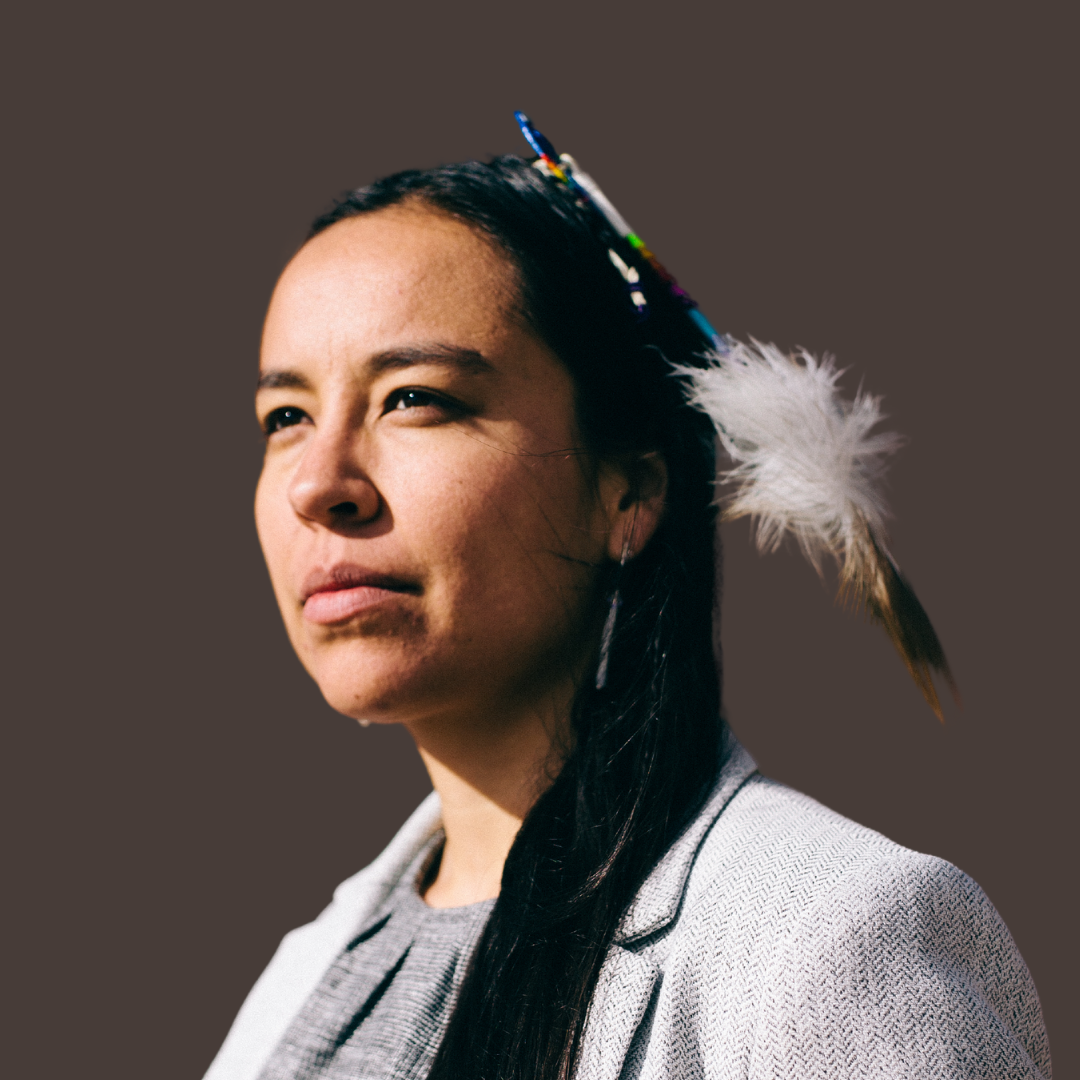
Dr. Lyla June Johnston
 Follow Dr. Lyla June Johnston on Instagram
Follow Dr. Lyla June Johnston on Instagram
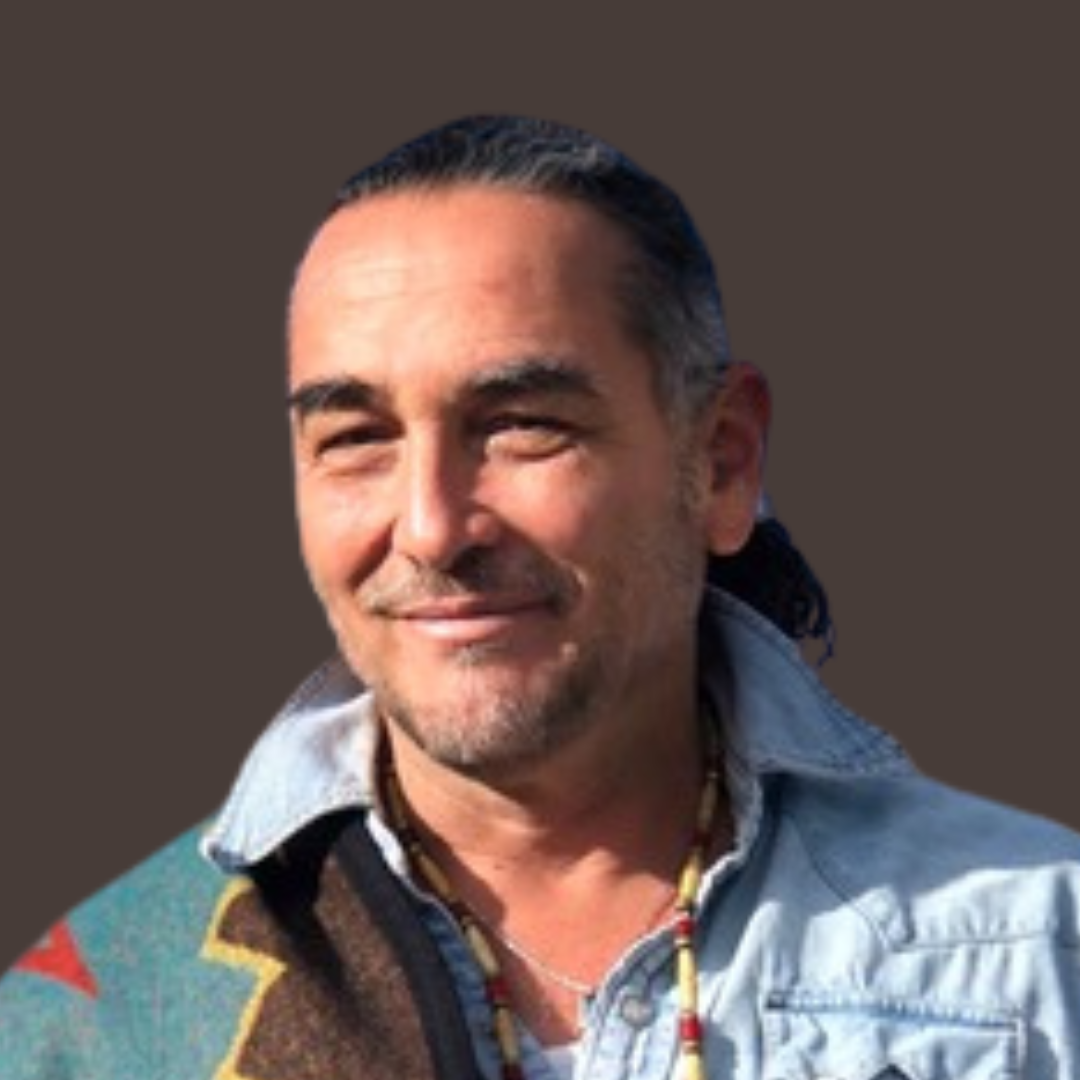
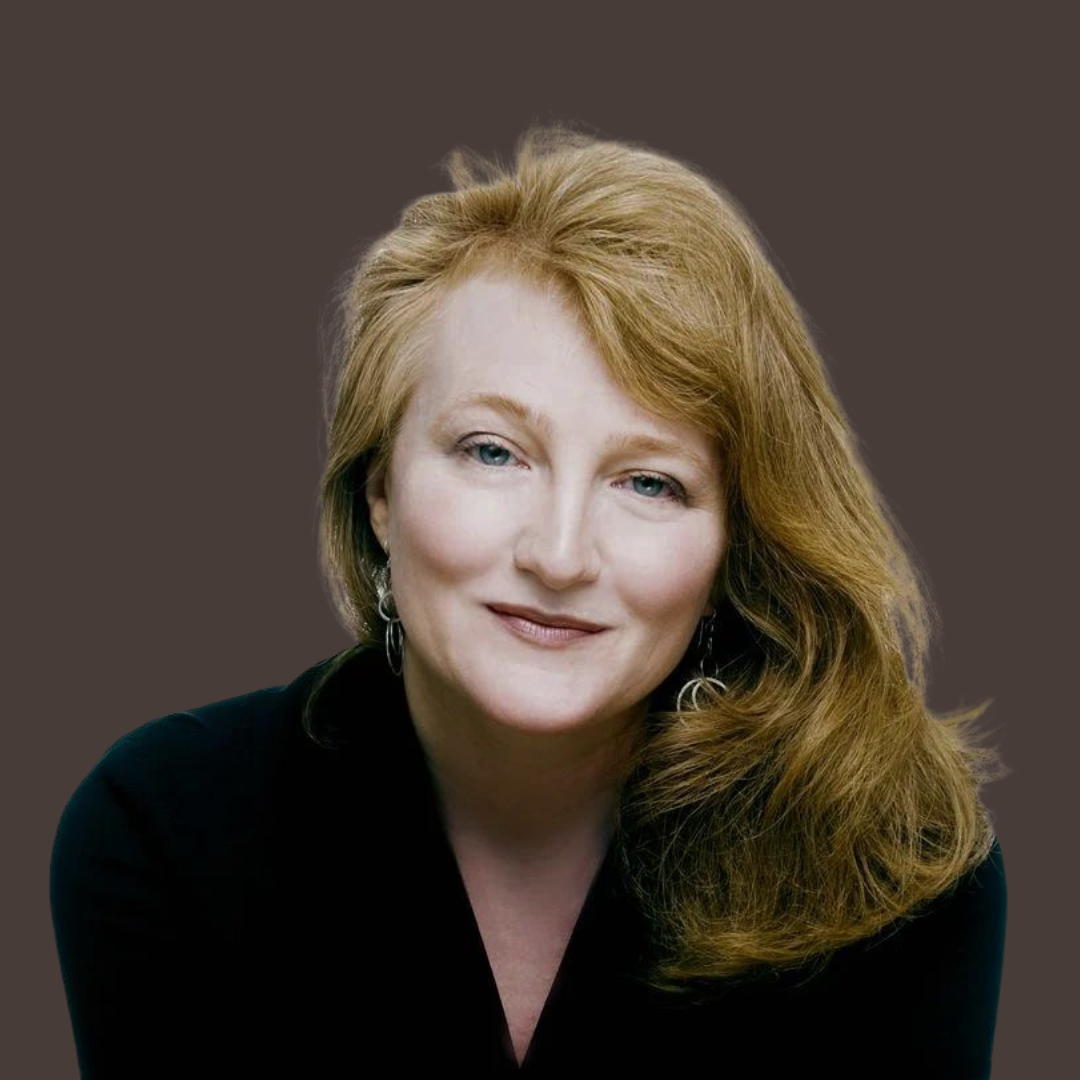
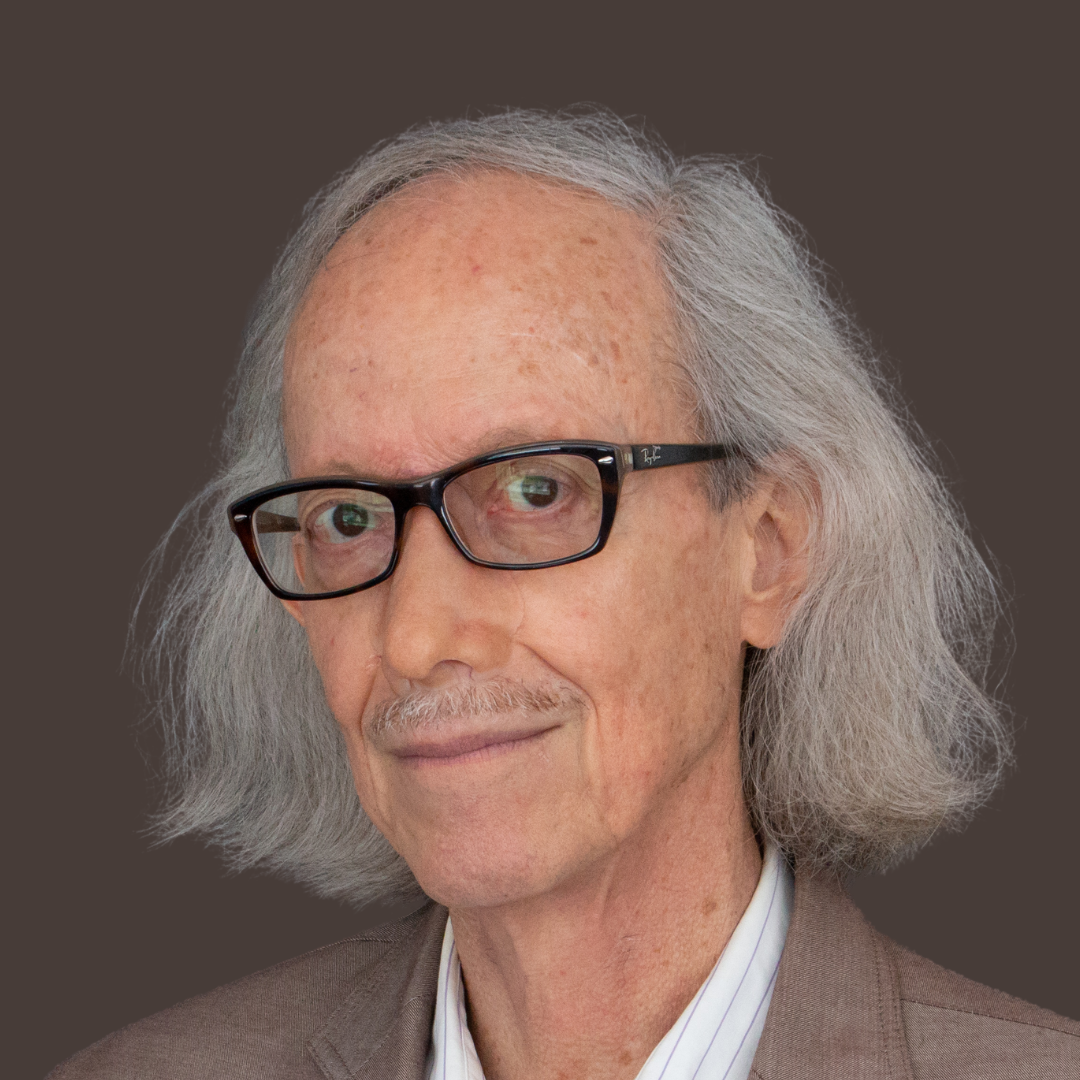
Arturo Escobar
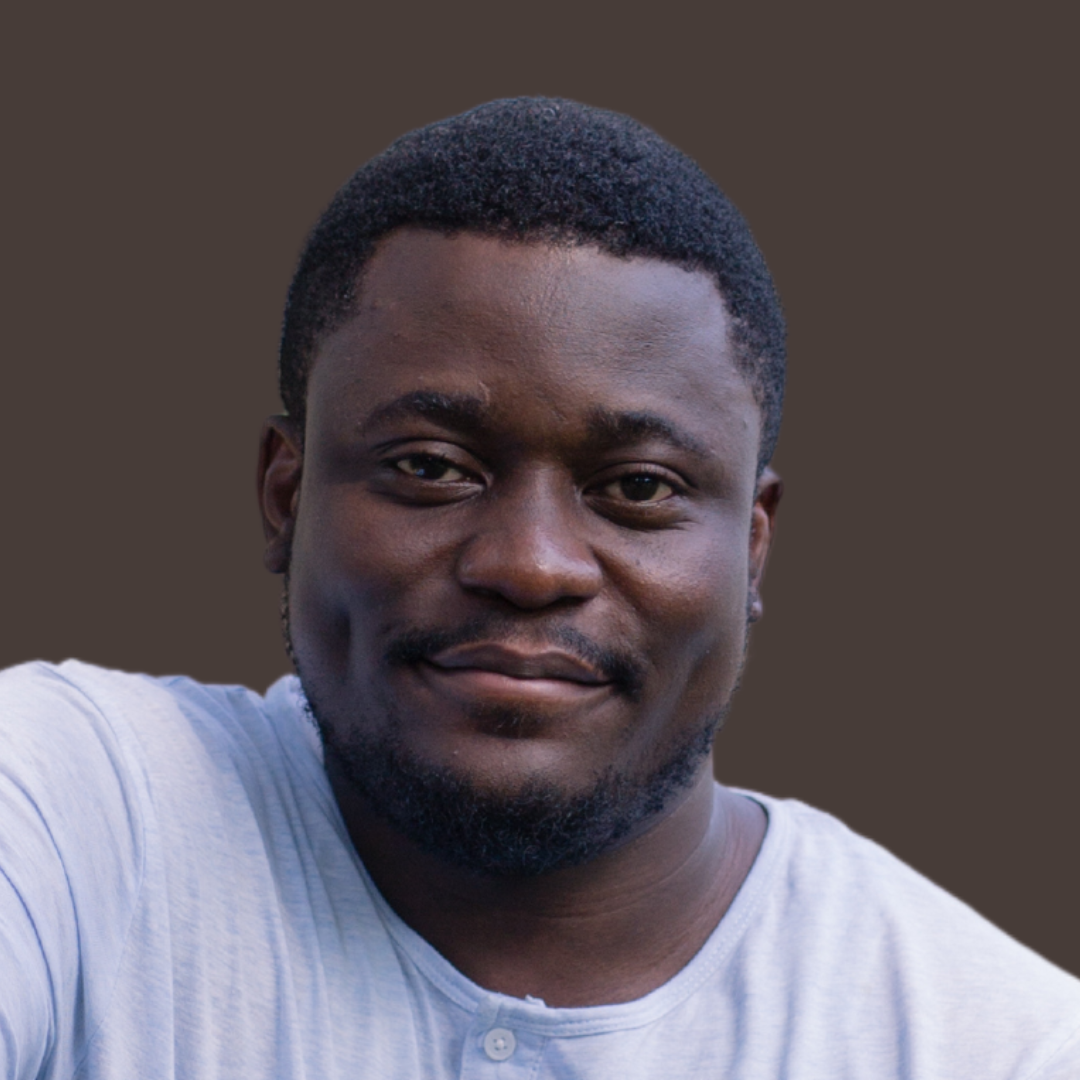
Dr. Bayo Akomolafe
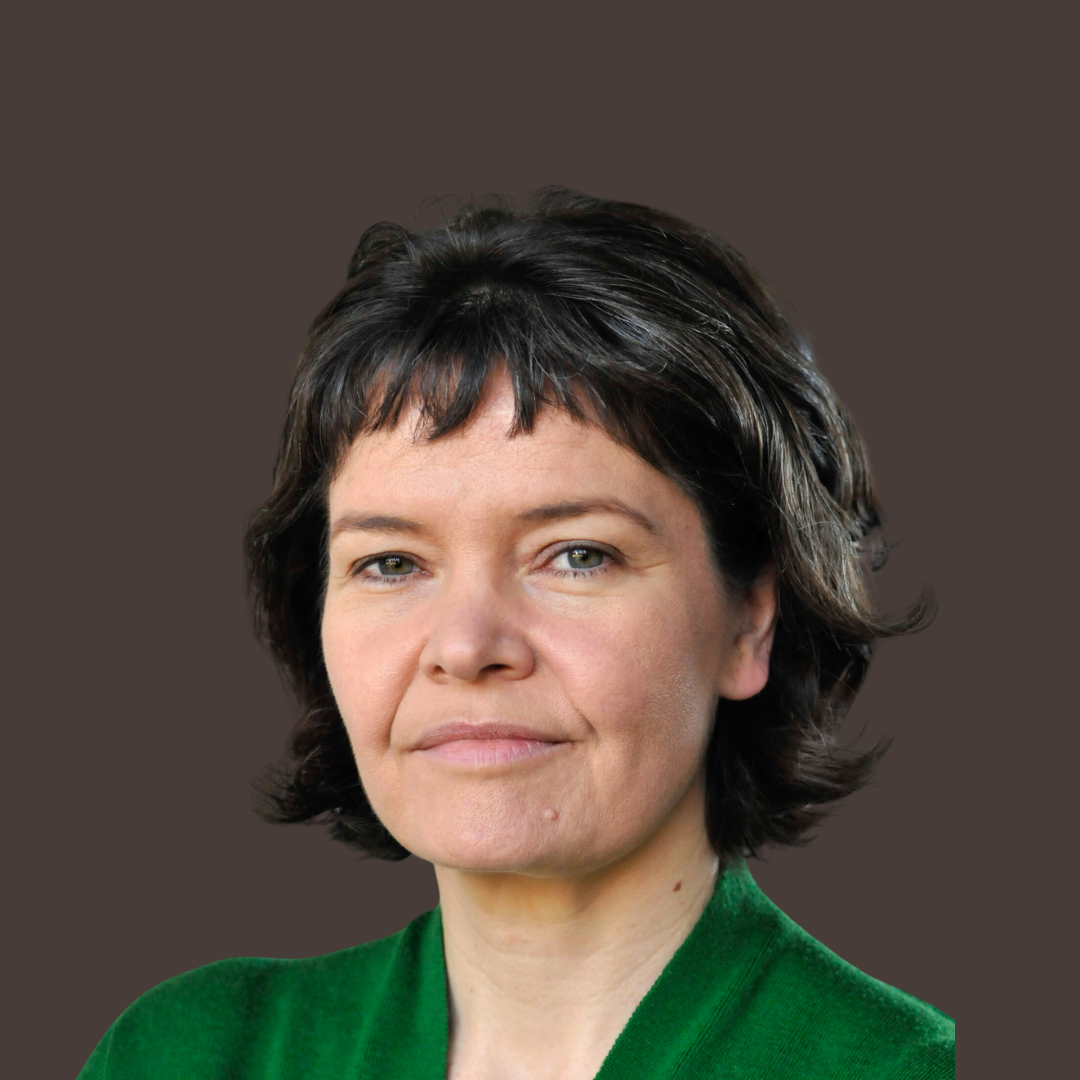
Kate Raworth
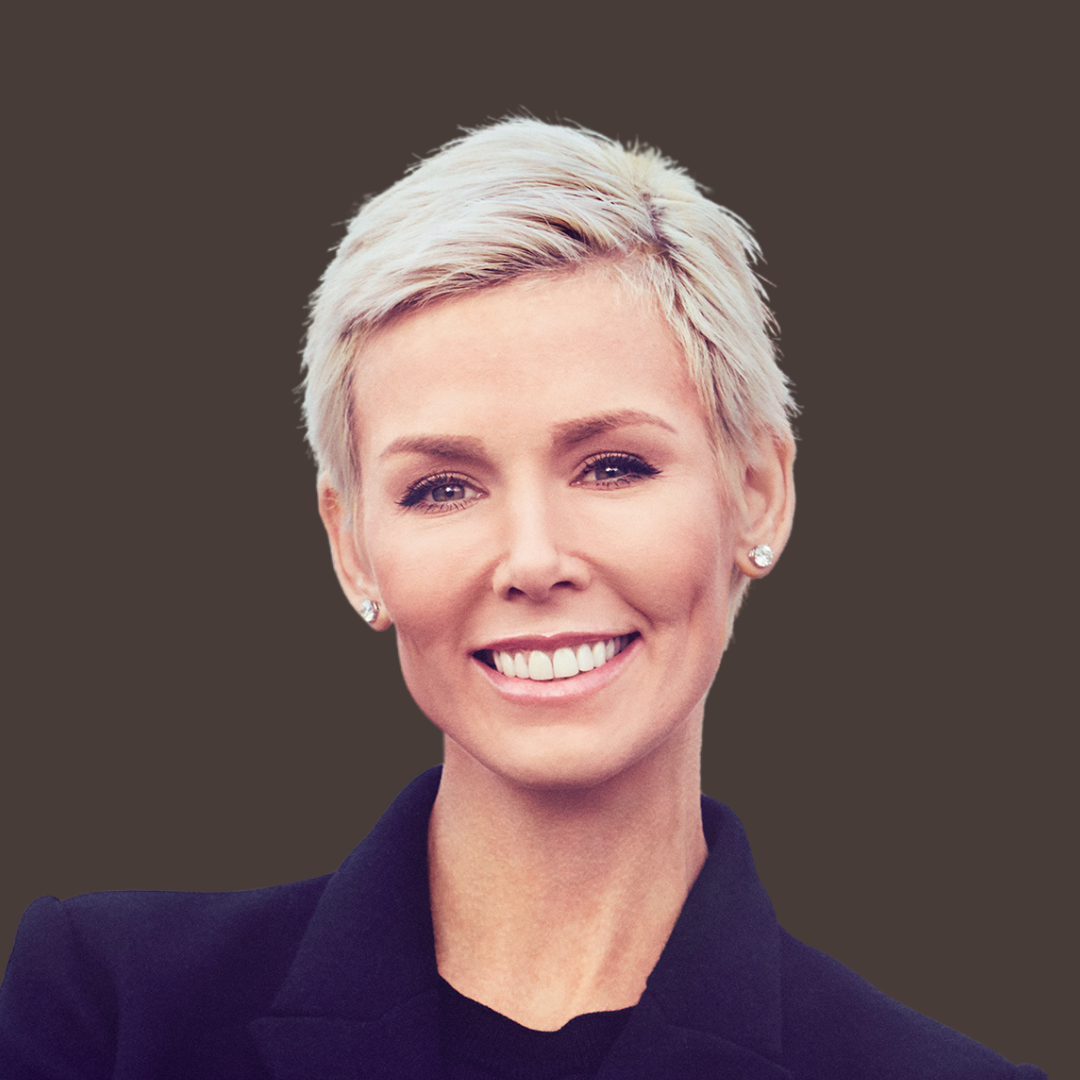
Dr. Gunhild Anker Stordalen
 Follow Dr. Gunhild Anker Stordalen on Instagram
Follow Dr. Gunhild Anker Stordalen on Instagram

